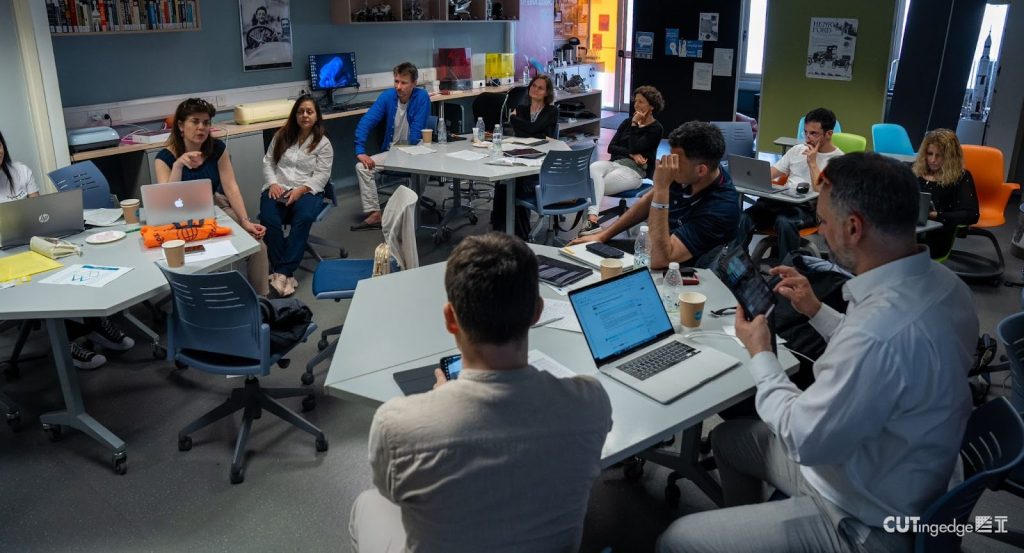The second expert workshop was organized by @ARIDLL (Augmented Reality Instructional Design for Language Learning), an Cooperation association project financed by the Erasmus + Programme – to explore and consolidate best practices of applying Augmented Reality technology to language learning.
Partners from 6 different countries joined the workshop, among those the Norwegian University of Science and Technology (Coordinator, Norway), the Cyprus University of Technology (Cyprus), the Heilbronn University of Applied Sciences (Germany), the Augsburg Technical University of Applied Sciences (Germany) the University of Cadiz (Spain), the University of Cyprus (Cyprus), the Open University (UK) and the 15th Primary School of Evosmos (Greece).
The workshop, held from April 22nd to April 24th, 2024, provided a platform for intensive discussions, skill-building sessions, and strategic planning to enhance the effectiveness of language learning through cutting-edge AR technologies. Participants engaged in a series of focused sessions designed to address key challenges, share insights, and develop innovative solutions with the use of Augmented Reality for language learning.
The workshop agenda included in-depth discussions on the project development, brainstorming sessions, progress monitoring, an AR authoring workshop, 3D modelling, 3D scanning; an instructional design guide for AR implementation in language learning contexts across the EU.
A highlight of the workshop was the hands-on sessions where participants honed their skills in AR authoring, scenario development, and content creation using MirageXR, a state-of-the-art AR authoring tool. Through collaborative exercises and peer feedback, participants refined AR scenarios tailored to language learning contexts, paving the way for innovative pedagogical approaches.
Further information about the project can be found via this link.


